Modern Horizons
Modern Horizons
This is an interesting set. Sitting between a standard sets($3.99) and the carefully picked reprints of the Masters sets ($12.99-29.99 per pack), this is their first set that introduces new cards that go directly to the Modern format. For those who don’t know, standard is basically the last couple of years of sets, (think equivalent to being the best in your high school). Modern is like the last 12 years, so the cards that get used in Modern are the best from a much bigger pool of cards. So for Wizards to make a set designed to go straight to Modern, it shouldn’t be surprising that the power of the cards needs to be big time.
From the wizards web site about the mechanics used:
Slivers – Slivers, the favorite creature type of at least one R&D member, are back! Each Sliver contributes something to the hive, giving every other Sliver you control some ability, a power/toughness boost, or a related bonus. Sometimes the bonus isn’t for Slivers on the battlefield but, rather, Sliver spells you cast. Older Slivers were even friendlier, also helping out your opponents’ Slivers, but they’ve learned that isn’t always the smoothest path to victory.
Snow – Snow, the third-favorite supertype of at least one R&D member, is back! Snow acts as a kind of marker. It doesn’t have any inherent rules meaning, but spells and abilities can refer to it for various effects. The snow mana symbol is represented by S in rules text (it looks like a snowflake). It’s a cost that can be paid for by any one mana produced by a snow permanent . . . like the gorgeous full-art snow basic lands!
Changeling – A creature with changeling is every creature type no matter where it is. Its type line may say Shapeshifter, but that’s decorative. It’s also a Human, a Merfolk, a Goat, a Warrior, a Coward, an Ooze, a Bear, a Sliver . . . it’s everything.
Cycling – Cycling is an activated ability, letting you pay a cost and discard the card with cycling from your hand to draw a new card. Don’t have what you need for the situation in front of you? Cycling gives you another shot to find the perfect card.
Battle cry – Battle cry was a favored tactic for the scrappy-but-still-kinda-doomed Mirran resistance. Maybe this new guy will have better luck. Whenever a creature with battle cry attacks, each other attacking creature gets +1/+0 until end of turn. Great for aggressive swarm attacks and people who like arithmetic.
Buyback – Buyback gives you an additional cost, paid as you cast the spell along with all its other costs. After you follow all the spell’s instructions, if the buyback cost was paid, you put the card back into your hand and not into your graveyard. Note that this works only if the spell actually resolves. If it’s countered or it doesn’t resolve because its targets became illegal, buyback won’t work, and the card will end up in the graveyard. Caveat emptor.
Cascade – Cascade gives you free spells! Who doesn’t love free spells? When you cast a spell with cascade, exile cards from the top of your library until you exile a nonland card with a lesser converted mana cost. Then, you may cast that spell without paying its mana cost. If you do, it goes on the stack on top of the original spell, meaning it will resolve first. Before anything resolves, put the other exiled cards on the bottom of your library in a random order. If the new spell also has cascade, you get to do it all over again.
Convoke – While casting a spell with convoke, you can tap untapped creatures you control to help pay for it. Tapping a creature this way covers one mana of any of that creature’s colors. Useful if you have some board presence but find yourself short on mana for your top-end threats.
Dash – Dash is an alternative cost. If you cast a creature spell for its dash cost, it gets haste. The catch is if the creature is still on the battlefield at the beginning of the next end step, it’s returned to its owner’s hand. But if you need a quick strike, dash is there for you.
Delve – Like convoke, delve gives you a way to help pay for the spell with the ability. Each card you exile from your graveyard while casting a spell with delve pays for one generic mana. However, unlike convoke, delve can’t help you with the colored mana requirements. Load up that graveyard and cast massive spells for little mana.
Devour – Who’s hungry? As a creature with devour enters the battlefield, it can eat (that is, you can sacrifice) any number of creatures. For each one it eats (that is, you sacrificed), it enters with some number of +1/+1 counters (that is, the devour number). Yum!
Dredge – A Golgari original, dredge lets you fish specific cards out of your graveyard. Any time you would draw a card, you can instead put the specified number of cards from the top of your library into your graveyard. If you do, return the card with dredge from your graveyard into your hand. Ideally, you fill your graveyard with even more dredge cards, giving you potent options as the game goes on.
Echo – Cards with echo usually cost a little less than they otherwise would, or with an added bonus. The catch is at the beginning of your next upkeep, you either have to pay the echo cost or sacrifice them. But if you’re willing to stretch out payments over two turns, you can quickly develop a strong battlefield.
Echo – Cards with echo usually cost a little less than they otherwise would, or with an added bonus. The catch is at the beginning of your next upkeep, you either have to pay the echo cost or sacrifice them. But if you’re willing to stretch out payments over two turns, you can quickly develop a strong battlefield.
Entwine – Modal cards give you a menu of choices in the form of a bulleted list. When you cast a modal spell, you choose which mode you’re using. For an additional cost, entwine gives you a better choice: all of them!
Evoke – Evoke is an alternative cost, usually one more affordable than the creature’s mana cost. Casting the creature for its evoke cost gives you faster access to its enters- or leaves-the-battlefield ability, but you must sacrifice the creature just after it shows up.
Evolve – Growing an extra tentacle or spleen out of nowhere can be surprisingly effective in battle. When a creature enters the battlefield under your control that has greater power or toughness than your creature with evolve, the creature with evolve gets a +1/+1 counter.
Exalted – Honored are those who charge into battle while we sit back here and just watch, thank you very much. Exalted is all about attacking with a single, hopefully unstoppable attacker. Whenever a creature you control attacks alone, it gets +1/+1 until end of turn for each instance of exalted among permanents you control. Suit up, and get in there!
Exploit – Whenever a creature with exploit enters the battlefield, you can sacrifice a creature. A fantastic deal, no? Of course, we gave each exploit creature another ability that gives you a bonus for doing this, so you’re not just offing your own creatures for fun.
Fateful hour – Fateful hour is an ability word that highlights cards that get better if you’re almost dead. Your life total is a resource after all, so being at 5 or less life isn’t the end of the world, and hopefully fateful hour cards give you what you need to hang on and stage a comeback.
Flashback – Casting instants and sorceries just once is so late 1990s. Flashback lets you cast an instant or sorcery from your graveyard, after which the card is exiled. Just pay the flashback cost rather than the mana cost and you’re ready to go retro.
Hellbent – Cards in hand are just cards you haven’t used to pulverize your opponent yet, so what’s the point of a full grip? Hellbent is an ability word used on abilities that care about you having no cards in hand.
Hideaway – A permanent with hideaway enters the battlefield tapped, but when it does, look at the top four cards of your library and exile one face down for safe keeping. The hideaway card will tell you what you can do with the card once it’s in exile. It’s a secret to everyone. Well, not you. You looked at the card. It’s a secret to everyone else.
Kicker – Kicker is the purest form of many additional cost mechanics that followed. Simply put, pay more to get more. Kicker gives you an optional additional cost and some sort of bonus for paying it, or “kicking” the spell. A workhorse mechanic that can give early-game cards additional punch in the late game.
Level up – Levelers have a distinctive partitioned card frame with three sets of stats. They start at level 0 (don’t we all?), and the level up ability gives you a cost you can pay as a sorcery to give the creature a level counter. Increased levels give these creatures better stats and new abilities.
Manifest – To manifest a card is to put it onto the battlefield face down as a 2/2 creature. If it’s a creature card, you can turn it face up by paying its mana cost. Turning it face up doesn’t use the stack and can’t be responded to. Surprise!
Modular – Modular is found on artifact creatures and means two things.
“Modular N” means it enters the battlefield with N +1/+1 counters on it, and when it dies, you can put all its +1/+1 counters on target artifact creature. They’re like building blocks, but instead of making a giant castle or a spaceship, you make a terrifying artifact to decimate your opponents.
Monstrosity – Bigger is better, and monstrosity is a one-time activated ability that gives the creature some +1/+1 counters and makes it monstrous. Sorry, MONSTROUS! Some creature with monstrosity abilities also have other bonuses for being monstrous. For example, it might pick up flying. Flying would be cool.
Morbid – Morbid abilities have various effects, but they all care in some way that a creature died earlier in the turn. It doesn’t matter who controlled the creature, so while taking out your opponent’s forces is usually a good thing, decks that rely on morbid abilities tend to include a few sacrifice outlets and good fodder for them.
Ninjutsu – If you’ve seen Ninjas before, you’ve probably seen ninjutsu. Impressive. Ninjutsu is an activated ability you can activate when the Ninja is in your hand. As a cost, you pay some mana and return an unblocked attacking creature you control to its owner’s hand. When the ninjutsu ability resolves, the Ninja enters the battlefield tapped and attacking whatever player or planeswalker the creature you returned was attacking. Plot twist! The creature was a Ninja all along. Hopefully your opponent doesn’t see it coming.
Outlast – Sometimes your battle plan is less “hit ’em quick, get out fast” and more “stay alive until this horror show has past.” Outlast is an activated ability you can activate as a sorcery to put a +1/+1 counter on the creature with outlast. You pay some mana, you tap the creature, and you play a waiting game. The creature ducks out of action for a while and trains, and when it’s big enough, you can go on the offensive.
Overload – Overload represents an alternative cost of some instants and sorceries. These spells all have an effect that includes the phrase “target [something].” If you cast a spell for its overload cost rather than its mana cost, you replace that phrase with “each [something],” increasing the spell’s effect. For example, “destroy target creature you don’t control” becomes “destroy each creature you don’t control.” Remarkable what a little less restraint can get you.
Persist – For a creature with persist, death is only the beginning. Specifically, when a creature with persist dies, if it had no -1/-1 counters on it, it returns to the battlefield with a -1/-1 counter on it. This may read like a one-time get-out-of-death-almost-free card, but if you can find a way to ditch that -1/-1 counter (say, by putting a +1/+1 counter on it and watching the counters annihilate each other), persist can . . . well, persist over and over again.
Pitch spells – “Pitch spells” isn’t a named mechanic, and you won’t see those words on the cards. It’s a nickname for the “Force” cycle, instants you can cast by exiling a card of a specified color from your hand rather than paying the mana cost if it’s not your turn. Of course, if you don’t want to exile a card, or if it’s your turn, you can cast these spells by paying the mana cost as normal.
Proliferate – Speaking of counters, proliferate is a very useful keyword action. When instructed to proliferate, you choose any players and/or permanents with counters on them, and then give each one another of each kind of counter it has. This can be an effective tool of decay, spreading -1/-1 counters or poison counters. It can also boost your own forces, adding +1/+1 counters to your creatures or loyalty counters to your planeswalkers.
Protection – Protection comes in many flavors, often protection from a color, but protection can be tailored to almost any quality. Say a creature has protection from red. That means it can’t be enchanted or equipped by any red Auras or red Equipment. If it’s a creature, it can’t be blocked by any red creatures (although it can happily block any incoming red attackers). It can’t be the target of any red spells or abilities whose sources are red. Finally, any damage that would be dealt to it from red sources will be prevented. Note that it doesn’t stop effects that don’t do any of those things. For example, a creature with protection from white can still be destroyed by a white spell that says “Destroy all creatures” because that spell neither targets nor tries to damage it.
Rebound – Continuing the theme of “casting spells once is boring,” we have rebound. If you cast a spell with rebound from your hand, instead of putting it into your graveyard as it resolves, you instead exile it. At the beginning of your next upkeep, you may cast it again, this time from exile (so it doesn’t rebound again) and without paying its mana cost. If the original spell doesn’t resolve—perhaps because it was countered or its targets went away—the card just goes to your graveyard and doesn’t rebound.
Replicate – Continuing the theme of “casting spells once is boring,” we have replicate. As you cast a spell with replicate, in addition to its mana cost, you may pay its replicate cost any number of times. For each time you do, you copy the spell, choosing a new target for it if you want.
Retrace – Continuing the theme of . . . you know . . . we have retrace. Retrace allows you to cast a spell from your graveyard by paying all its normal costs and discarding a land card from your hand. After the card with retrace resolves (and usually even if doesn’t), it goes back to your graveyard, where it can be cast again using retrace. As the game goes on, retrace gives you something good to do with excess lands.
Shroud – So, you think you’re untouchable? A player or permanent with shroud is pretty close, as shroud means it can’t be the target of any spell or ability, even ones you control.
Splice – Splice is an unusual ability that allows you to copy the effect of a splice card onto another spell. Older cards could only be spliced onto spells with the subtype Arcane. Modern Horizons expands that a bit with a new twist (or maybe de-twist) that allows you to splice the card onto any instant or sorcery. To splice a card, it must be in your hand. Reveal it and pay the specified splice cost as you’re casting another instant or sorcery. The effect of the splice card gets added to the effect of the spell you’re casting, while the card with splice remains in your hand.
Storm – When you cast a spell with storm, you copy it for each spell cast before it during the turn. This includes spells any player cast, not just you. This doesn’t include effects that copy a spell on the stack, like the copies storm itself creates. It’s a storm, not a hurricane. Calm down. Of course, if the spell with storm requires targets, you can choose new ones for each of the copies.
Suspend – What if you could cast spells not with mana, but with time? You can suspend a card any time you could cast that card. To do so, exile it from your hand and pay the specified suspend cost. This will give it a certain number of time counters. At the beginning of your upkeep, remove a time counter. When the last is removed, cast it without paying its mana cost. If it’s a creature, it will gain haste. People sometimes forget about that haste part. Don’t be those people.
Threshold – Threshold is an ability word that appears before abilities that get better if you have seven or more cards in your graveyard. Doesn’t particularly matter how they got there, either. Putting cards from the top of your library into your graveyard (aka “self-mill”) can be a fast way to some powerful bonuses.
Totem armor – Totem armor is an ability of some Auras that give the enchanted creature a measure of safety. If the enchanted permanent would be destroyed, the Aura with totem armor can take its place and be destroyed instead. This will clear all damage that was dealt to it during the turn, so you don’t have to worry about the creature immediately being re-destroyed. Auras with totem armor will also have an ability that makes the enchanted creature better while it’s still alive as well. It’s not all about defeating death.
Undying – Undying is all about defeating death. When a creature with undying dies—we know—if it didn’t have any +1/+1 counters on it, it returns to the battlefield with a +1/+1 counter. New and improved! The trick we learned with persist also works here. Losing the +1/+1 counter is a little sad, but it does let you save the creature again, so it very well may be worth it.
Untap symbol, the – Denoted as Q in rules documents, the untap symbol is the natural opposite of the tap symbol. They operate under similar rules: both represent costs that can’t be paid if found on a creature that came under your control during or since your most recent turn (unless the creature has haste). To activate an ability with Q in the cost, the permanent must already be tapped. You then untap it to pay that cost. For example, if you attack with a creature that has a Q ability, activating that ability can give you a potential blocker your opponent may not have expected.
Vanishing – We end our list with vanishing, an ability that reminds us all that life is fleeting. A permanent with vanishing enters the battlefield with some number of time counters on it. At the beginning of your upkeep, a time counter is removed. When the last time counter is removed, you sacrifice the permanent. Well that’s kind of sad. We’re ending on this? There are no more keywords in the set? We couldn’t think of any cute wither designs? Just time’s up, list over, now you’re dead? Well then.
 If you are anything like me, this is another one of those milestones that remind us of how things have changed. Usually our Magic prereases are a tribal gathering of folks who all share loving to play the same game. But like most things these days, we need to get a little more cleaver to find hidden stashes of fun. Enter the Ikoria Prerelease in Pajamas
Suggestion 1 More fun then just opening a booster box: Open boxes in piles of 6 packs. That way you can not only see what’s in the packs, but use the sets of 6 to make different sealed decks.
Suggestion 2: Home League: This is one of my absolute fav was to get the most fun per pack possible, and will work particularly great for the current set. It is very simple. Take a 6 pack sealed pool of cards like the Prerelease kit as the league starter. Then every day, or every few days, whatever you decide, each player in the league gets to open one more pack to add to their collection of cards to make a deck (or what will become lots of decks) with. Those become the most fun to open packs ever, since it is not just the one or two best cards that are interesting, but each card gets an extra look to see if it might help make something better, or something new. For those parents who are trying to keep things motivating or interesting each day, this is a great way to do it. Even if they have a booster box that they can’t help but try and open right away, try to help them open the packs with scissors so the cards can go back in and get randomly used for a league.
Suggestion 3–Zoom Magic. You can play real live Magic with your buds online and it is great fun. BUT, and this is a big but, there are a few changes in the way to play you need to make part of it for everyone to have fun:
If you are anything like me, this is another one of those milestones that remind us of how things have changed. Usually our Magic prereases are a tribal gathering of folks who all share loving to play the same game. But like most things these days, we need to get a little more cleaver to find hidden stashes of fun. Enter the Ikoria Prerelease in Pajamas
Suggestion 1 More fun then just opening a booster box: Open boxes in piles of 6 packs. That way you can not only see what’s in the packs, but use the sets of 6 to make different sealed decks.
Suggestion 2: Home League: This is one of my absolute fav was to get the most fun per pack possible, and will work particularly great for the current set. It is very simple. Take a 6 pack sealed pool of cards like the Prerelease kit as the league starter. Then every day, or every few days, whatever you decide, each player in the league gets to open one more pack to add to their collection of cards to make a deck (or what will become lots of decks) with. Those become the most fun to open packs ever, since it is not just the one or two best cards that are interesting, but each card gets an extra look to see if it might help make something better, or something new. For those parents who are trying to keep things motivating or interesting each day, this is a great way to do it. Even if they have a booster box that they can’t help but try and open right away, try to help them open the packs with scissors so the cards can go back in and get randomly used for a league.
Suggestion 3–Zoom Magic. You can play real live Magic with your buds online and it is great fun. BUT, and this is a big but, there are a few changes in the way to play you need to make part of it for everyone to have fun:

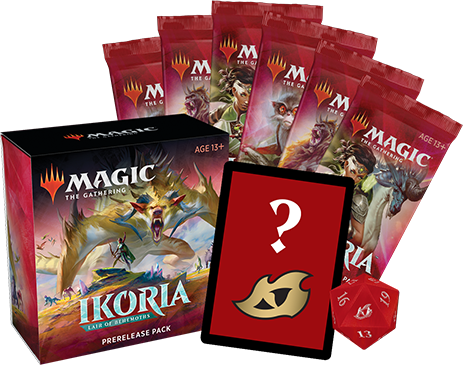
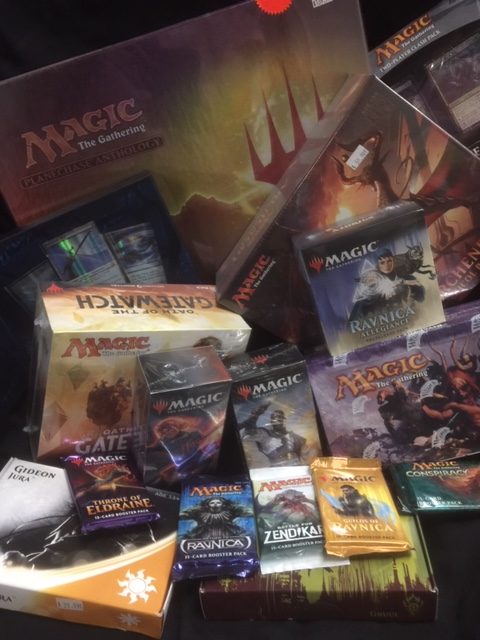

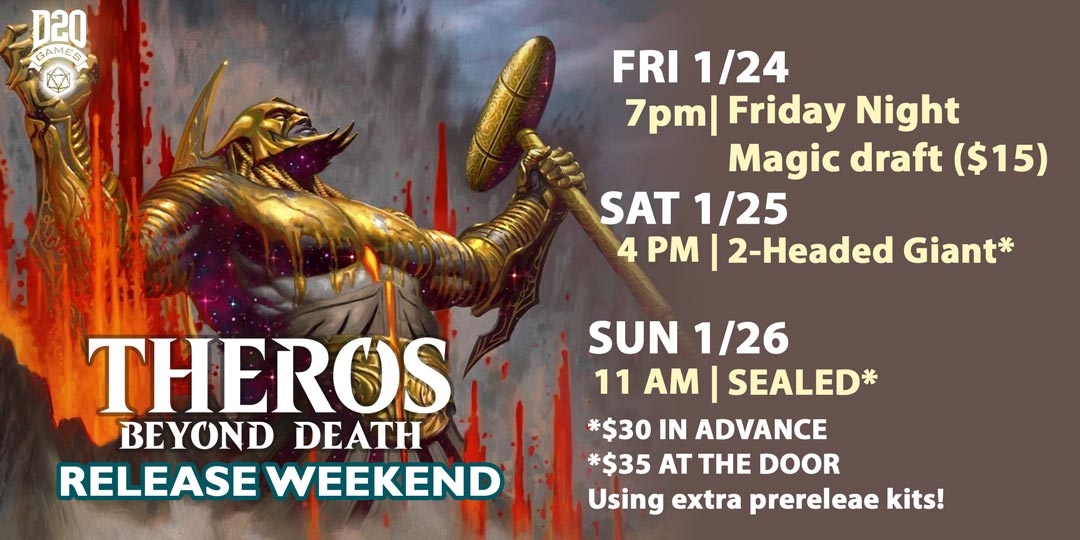
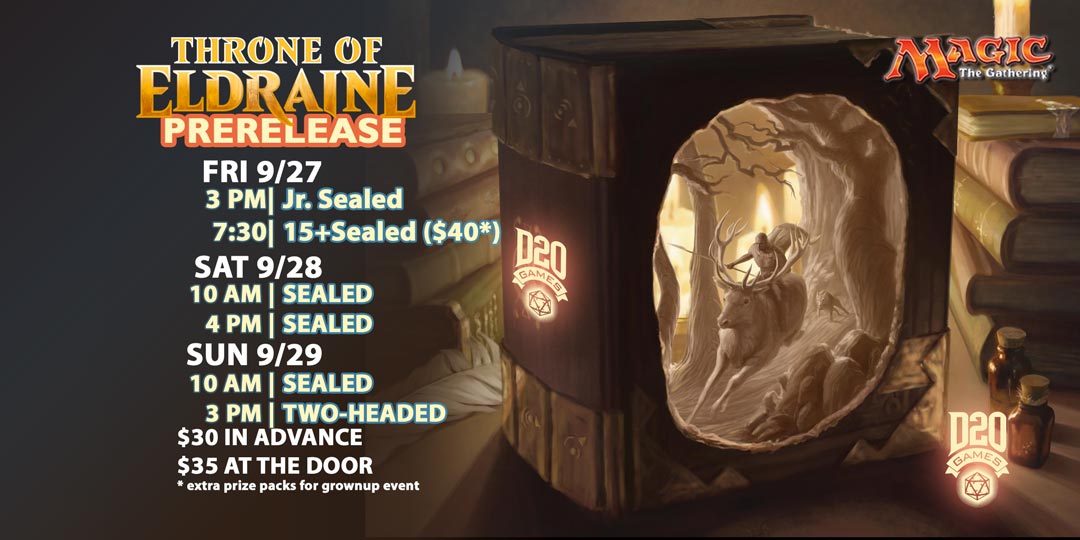
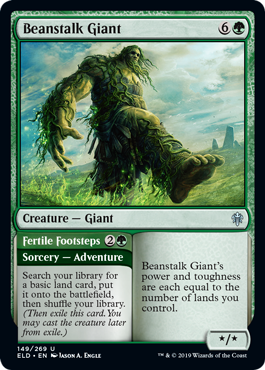
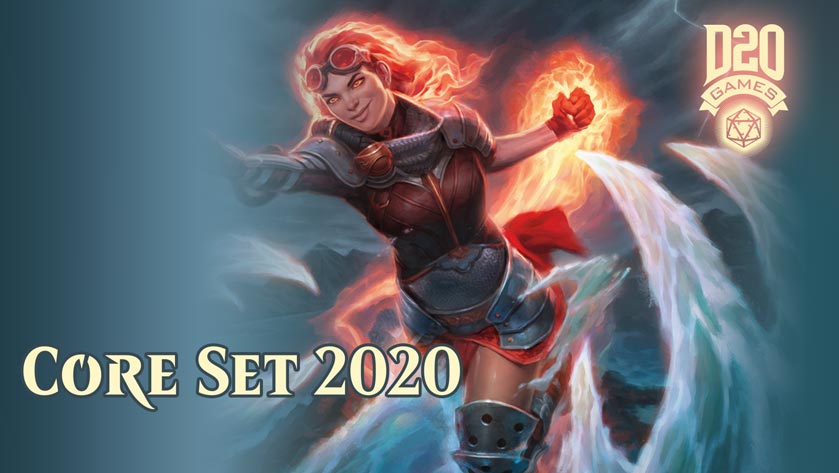
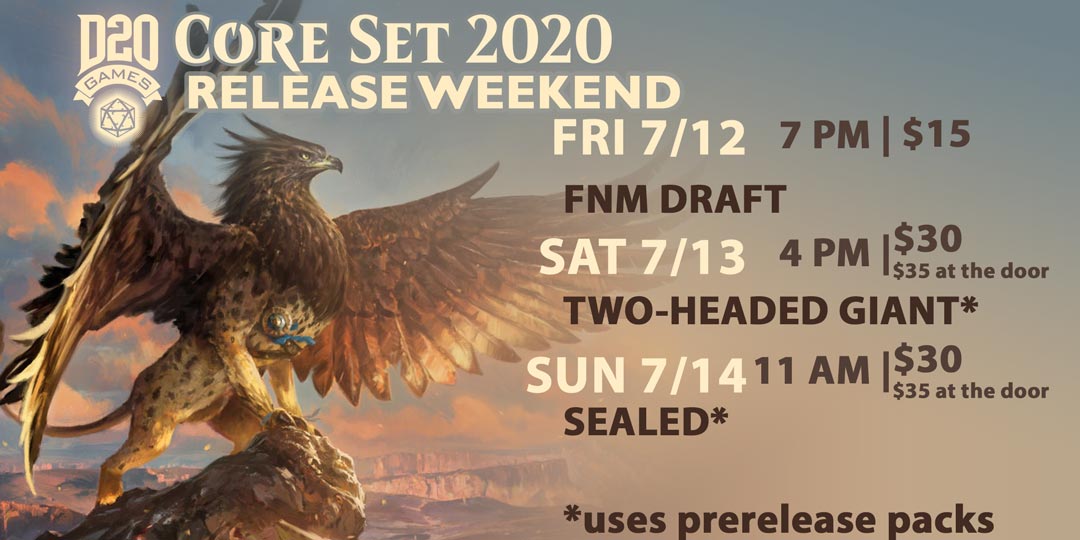
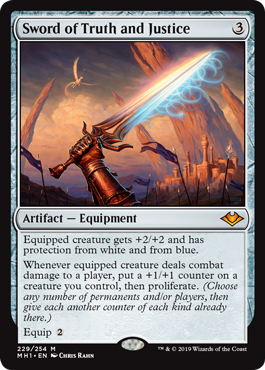
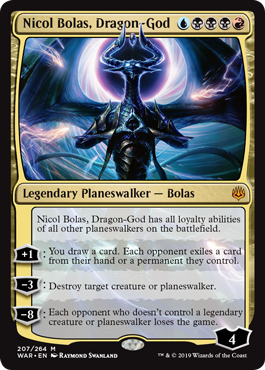
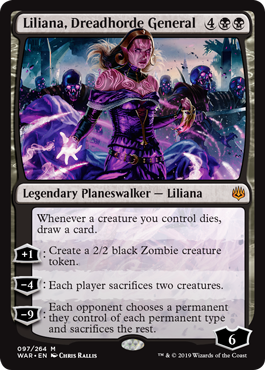
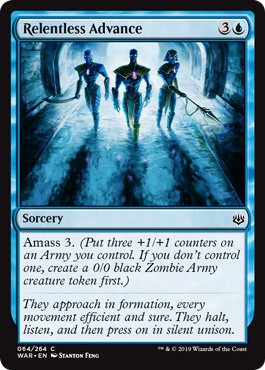
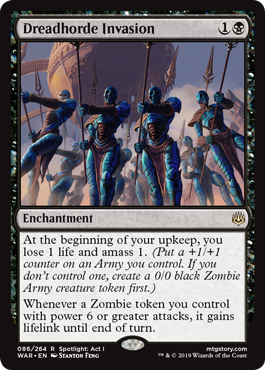
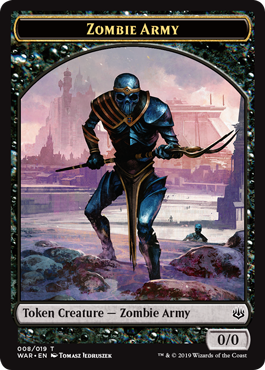
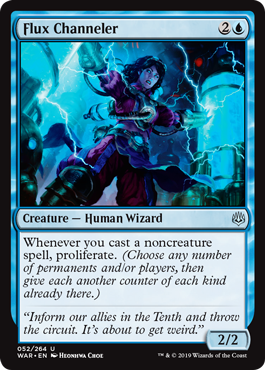
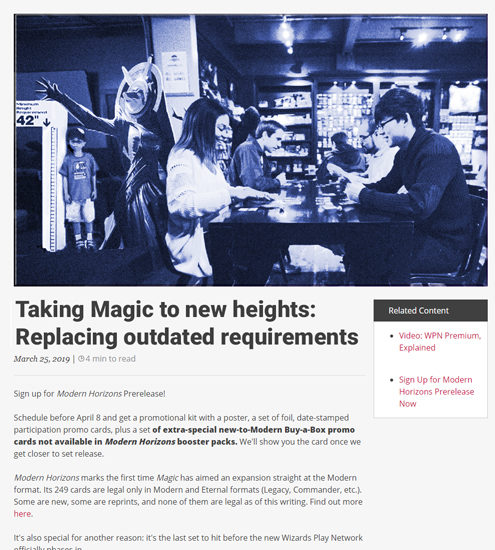
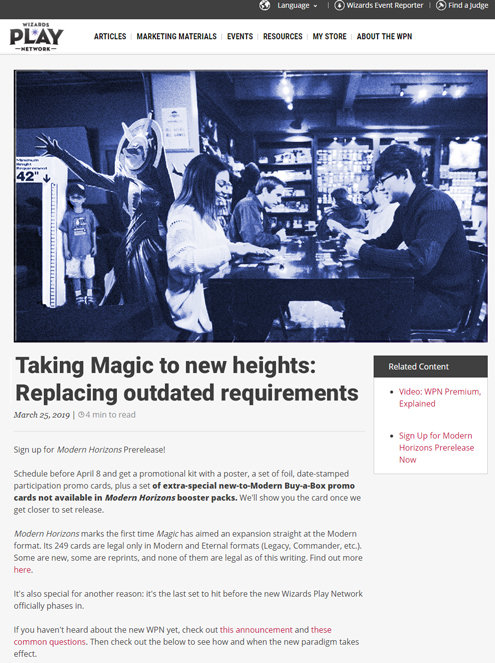 Earlier this year, Wizards introduced so changes for those of us scheduling events that actually made a lot of sense. They let us start setting age limits for the events. (It used to be that if an event was sanctioned for Magic or D&D, that those events had to be open to all players.) Seems pretty inclusive, but what that meant was that we couldn’t do a kids only event and prevent an adult for attending, or if we wanted to do an after hours, grown-ups only event, stores wouldn’t be able to do that.
Earlier this year, Wizards introduced so changes for those of us scheduling events that actually made a lot of sense. They let us start setting age limits for the events. (It used to be that if an event was sanctioned for Magic or D&D, that those events had to be open to all players.) Seems pretty inclusive, but what that meant was that we couldn’t do a kids only event and prevent an adult for attending, or if we wanted to do an after hours, grown-ups only event, stores wouldn’t be able to do that.